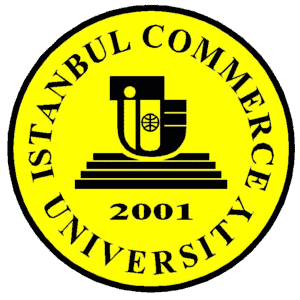At A Glance
Course Title
Master in Sustainable Development
Course Level
Master’s Degree
Course Credits
180 Credits
Study Method
Campus/Blended/Online
Start Date
September / January / May
Course Duration
18 months
Awarded By
Paris Graduate School

Course Description
This program advances the knowledge of Sustainable Development and environmental management, the policy process, nature and practice of the subjects as a concept and field of practice in international development, public policy and business management. It is tailored to provide leaders and prospective leaders in the public, private and non-profit sector the knowledge required to build capacity, coordinate and manage the implementation of SDGs.
The programme is a 180-credits Master’s degree organized around 6 compulsory course units of 20 credits each. Students are required to pass all 6 courses, write and defend a compulsory final dissertation to earn the degree. In most cases students are asked to complete a minimum of 3 months internship or industrial training as additional requirements.
Classes could either be taken onsite or online. Onsite students complete the course work in 1 academic year and would write the required dissertation leading to the award of the degree. Students studying online have the advantage to take the coursework at their rhythm, apart from the compulsory online sessions, but must complete the course work with the required assignments and final dissertation in a maximum of 18 months.
Key Features:
- To promote the understanding of the concepts of Sustainable Development and Environmental Management.
- To promote the understanding of how policy-makers and other stakeholders can apply policies to the governance of scarce resources and the preservation of the environment.
- To assist in making informed decisions in different professional and leadership roles at present and in future
- To assist in the application of the principles and concepts leant in the course of their study to their respective professions and future career responsibilities be it in the private, public and non-governmental sector.
Course Content
This module delineates the foundational constructs of research design, focusing on the systematic formulation of protocols that govern empirical inquiry. Emphasis will be placed on qualitative and quantitative methodologies, elucidating their respective paradigms and applicability in various research contexts. Students will engage critically with the epistemological underpinnings of different methodological approaches, fostering an appreciation for robust data collection techniques and analytical strategies. The module will also explore ethical considerations intrinsic to research practice, thereby equipping scholars with the requisite frameworks to navigate potential dilemmas. Ultimately, students will be adept at articulating cogent research questions and constructing comprehensive methodological frameworks that are both methodologically sound and ethically responsible.
Within this module, participants will critically assess the multifaceted concept of sustainable development as it pertains to socio-economic equity, environmental stewardship, and intergenerational justice. The curriculum traverses historical milestones in global sustainability discourse while scrutinizing contemporary frameworks such as the United Nations Sustainable Development Goals (SDGs). An integrative approach will facilitate discussions surrounding policy implications and practical applications across diverse sectors. Students will engage in rigorous analyses of case studies that exemplify successful sustainable practices globally. By synthesizing theoretical insights with empirical evidence, learners will cultivate a nuanced understanding of how sustainable development serves as a catalyst for transformative societal change.
This module focuses on advanced principles and practices within environmental management systems aimed at mitigating anthropogenic impacts on ecological integrity. Through an interdisciplinary lens, students will investigate regulatory frameworks, best practices in resource conservation, and innovative technologies that contribute to effective environmental governance. The curriculum emphasizes stakeholder engagement and participatory approaches that empower communities in stewardship initiatives. Case studies illustrating successful interventions in biodiversity preservation and habitat restoration will underscore practical implications for sustainability practitioners. As a culmination of this exploration, learners will develop strategic management plans tailored to address specific environmental challenges.
This module delves into the intricate interplay of ethical paradigms, scrutinizing the multifaceted dimensions of professional, personal, and general ethics as they pertain to the overarching goal of sustainability. Participants will engage in critical discourse surrounding normative ethical theories, encompassing utilitarianism, deontology, and virtue ethics, while contemplating their implications for sustainable practices across various sectors. The curriculum will foster an examination of moral agency within professional contexts, illuminating how individual ethical frameworks can influence collective actions aimed at fostering environmental stewardship and social equity. Additionally, participants will critically evaluate case studies that highlight ethical dilemmas encountered in sustainability efforts, thereby cultivating a nuanced understanding of the role ethics play in shaping sustainable policy and practice. Ultimately, this module aspires to equip students with the analytical tools necessary to navigate complex ethical landscapes in pursuit of a more sustainable world.
In this module, we will engage with the burgeoning discourse surrounding social responsibility as a catalyst for innovation within contemporary organisational frameworks. By interrogating theoretical underpinnings that link corporate social responsibility (CSR) with innovative practices, participants will explore how socially responsible initiatives can engender competitive advantage while concurrently addressing societal challenges. Through an exploration of empirical research and real-world applications, students will assess the efficacy of various innovative strategies that align corporate objectives with broader societal needs. This analysis will encompass both traditional business models and emergent paradigms such as social entrepreneurship and impact investing. Ultimately, this module endeavours to cultivate an integrative approach where innovation is not merely a driver for profit but also a conduit for meaningful contributions to social welfare.
The Education and Sustainable Development module critically examines the pedagogical frameworks necessary for fostering an informed citizenry capable of addressing complex sustainability challenges. Central to this discourse is the integration of sustainability principles into educational curricula across all levels—aiming not only to impart knowledge but also to instil values that underpin sustainable practices. Participants will analyse historical perspectives on education’s role in societal transformation while engaging with contemporary methodologies that promote experiential learning and critical thinking skills essential for sustainability advocacy. Furthermore, this module encourages collaboration among stakeholders—including educators, policymakers, and community leaders—to develop synergistic approaches that bridge theory with practical application in promoting sustainable development goals (SDGs). By synthesising interdisciplinary insights from sociology, ecology, and economics within educational contexts, students are equipped to become proactive agents of change committed to advancing global sustainability initiatives.
In this comprehensive module, students delve into Agenda 2030—a seminal framework established by the United Nations aimed at galvanizing international cooperation towards achieving sustainable development targets by the year 2030. The agenda’s intricate architecture comprising 17 Sustainable Development Goals (SDGs) serves as a blueprint for transformative change across geopolitical landscapes; hence its significance cannot be overstated within contemporary policy discourse. Scholars will critically analyze how this framework interlaces environmental integrity with socio-economic advancement while evaluating its efficacy through various metrics of success or failure across multiple jurisdictions. In-depth discussions regarding implementation challenges encountered by nation-states provide fertile ground for innovative problem-solving initiatives rooted in collaborative governance models. Ultimately, learners emerge equipped not only with theoretical knowledge but also with pragmatic insights necessary for contributing effectively to international sustainability efforts.
The Blue Ocean Economy module invites students to explore economic paradigms characterized by sustainable exploitation of marine resources while eschewing competitive market constraints typically associated with conventional economic activities. This emergent economic model foregrounds innovation-driven strategies designed to unlock new demand spaces while simultaneously promoting ecological resilience within oceanic ecosystems. Participants will examine case studies exemplifying successful blue economy initiatives across various coastal settings worldwide—articulating mechanisms through which these projects reconcile economic growth with marine conservation imperatives. Additionally, critical reflections on policy frameworks governing marine spatial planning manifest opportunities for interdisciplinary collaboration among stakeholders invested in maritime affairs—including governmental agencies, private sector actors, academic institutions, non-governmental organizations (NGOs), local communities, etc., thereby fostering synergistic approaches toward ocean governance.
Culminating in an independent research project component allows students to synthesize theoretical knowledge acquired throughout their academic journey into empirical practice—facilitating experiential learning through self-directed inquiry into pertinent issues related to sustainability or environmental management disciplines. Guided by faculty mentorships alongside structured feedback sessions throughout project execution phases ensures adherence to scholarly rigor while enabling iterative refinement processes integral to high-quality research outputs. Emphasis shall be placed upon utilizing appropriate methodologies previously discussed during earlier modules—thereby solidifying practical competency vis-à-vis defined research questions pertinent within relevant fields
Study Method
The delivery will consist of FOUR components :
- Lecture session
- Tutorial session
- Practical session
- Blended Learning
Lecture Session
Lectures will be of a maximum duration of 3 hours (with a 10–15-minute break during the period) the purpose of a lecture is to provide key information to the students for the subject being taught.
On occasions, lecture exercises are used which require course participants to become actively involved in “learning by doing”, let students take active part in discussing related current topics.
Tutorial Session
Tutorials will be provided through case studies for the students to further discuss and/or undertake the topics previously covered in the lecture sessions.
Students will be given video/written case studies after each lecture topic and work in groups.
Practical Session
Practical sessions are mainly undertaken in the computer laboratories, or workshop activities are set up to enable the learner to reflect on the processes he or she has experienced. Workshops enhance skills development and the acquisition of knowledge. Short presentations alternate with group work. Students spend time working together in small groups, brainstorming, analysing case-studies, carrying out group discussions or group exercises, learner presentations, role play, plenary feedback session.
PGS Blended Learning Portal
Pedagogy is rapidly changing. Pedagogy requires meaningful classroom interactions between educators and learners.
Course Fees
Please get in touch with us to get the most up-to-date course fee for the Paris Graduate School Master in Sustainable Development
Entry Requirements
- Level 5 Extended Diploma in Law; Or Level 4 and Level 5 Diploma in Law
- Applicants without a Level 5 Diploma but holding significant legal experience will be provided an alternative accelerated pathway on a case-by-case basis.
Apply Now
Apply now to embark on your academic journey and unlock endless opportunities! Join our vibrant community of scholars and leaders, and pursue your passion with an internationally recognised British qualification.
Click Apply Now to start your application for the Bachelor of Laws LLB (Hons) (Top-Up) programme today.





